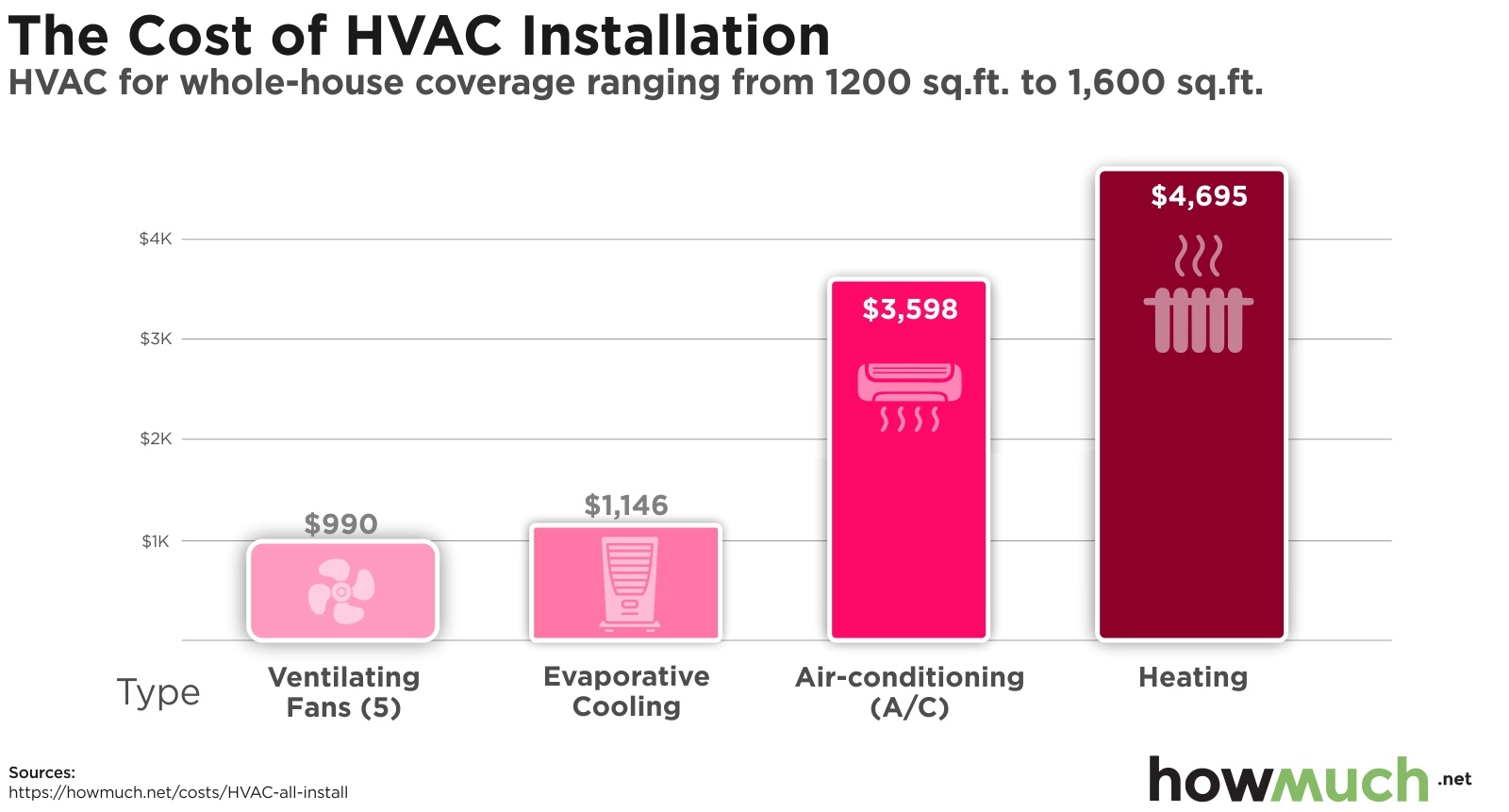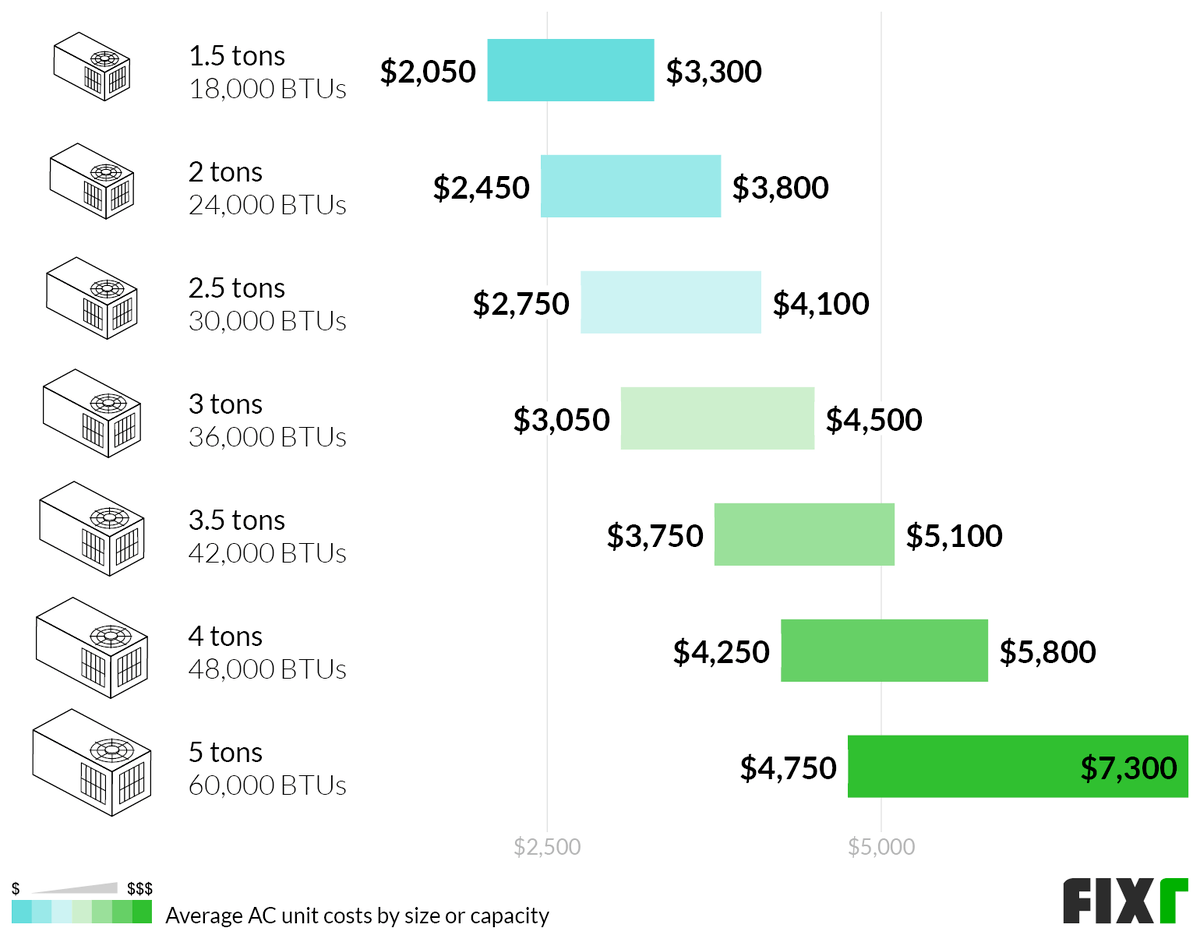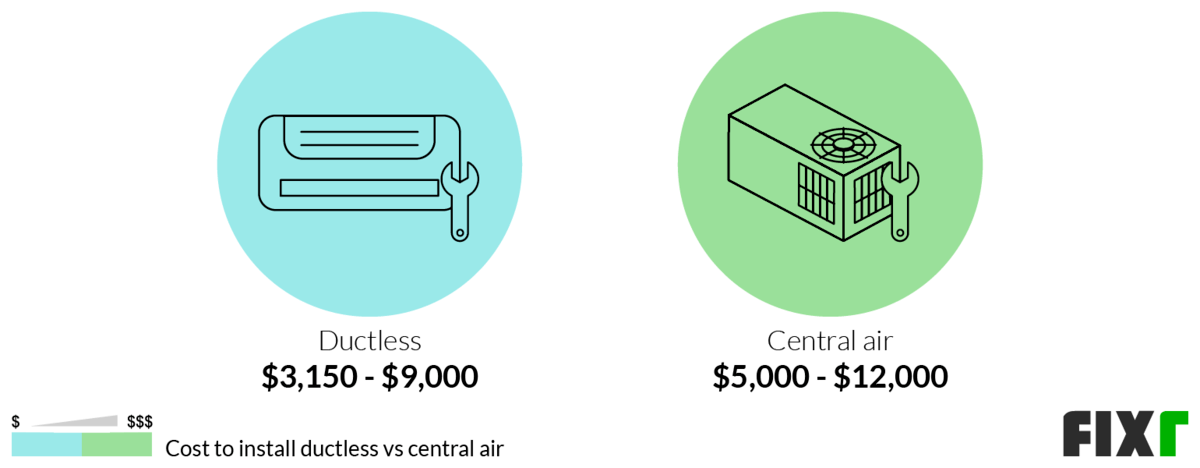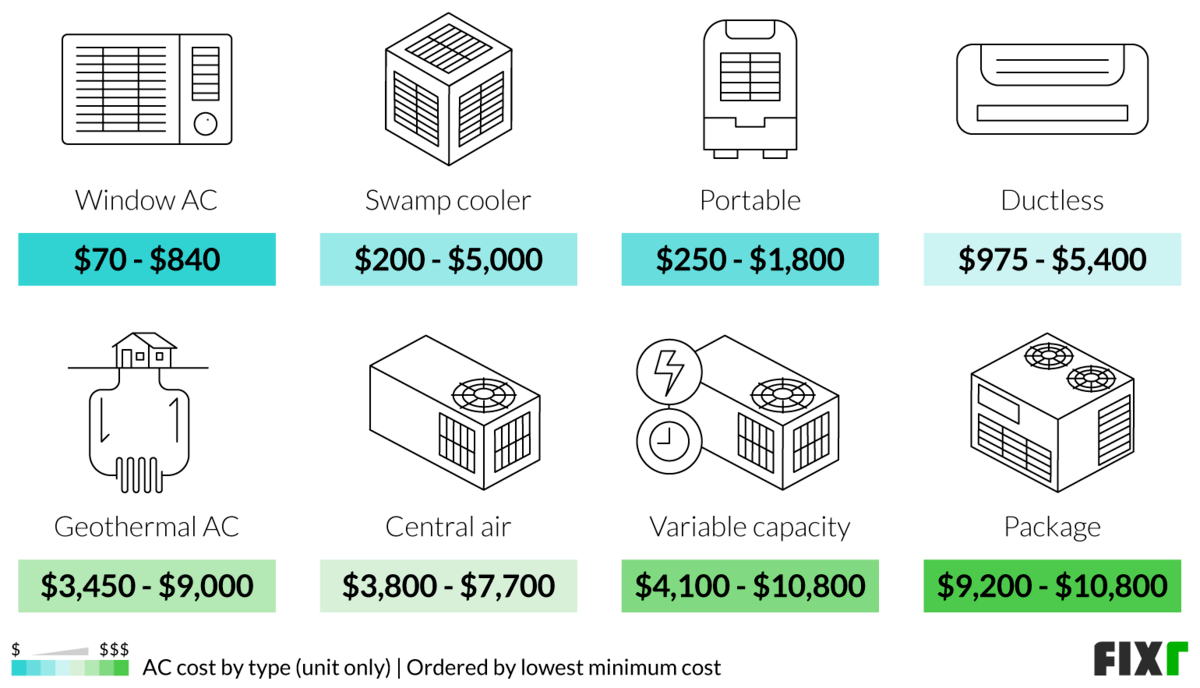Average Cost Of Central Air Conditioning

Understanding the average cost of central air conditioning is crucial for anyone involved in the HVAC industry, from aspiring technicians to seasoned business owners. This article provides a comprehensive overview of central AC costs, factors influencing pricing, career paths, salary expectations, and the importance of professional certifications in this ever-evolving field.
Central Air Conditioning: A Cost Breakdown
The total cost of installing a central air conditioning system can vary significantly depending on several factors. While providing a single, fixed number is impossible, we can break down the components to provide a realistic estimate.
Components of AC Installation Costs
- Equipment (Unit Purchase): This is the most substantial cost component. The price of the AC unit itself depends on its size (BTU rating), efficiency (SEER rating), and brand. Expect to pay anywhere from $2,000 to $7,000 for the unit alone. Higher SEER ratings typically equate to higher upfront costs but lower long-term energy bills.
- Installation Labor: Labor costs can range from $500 to $2,500, depending on the complexity of the installation. Factors influencing labor costs include the existing ductwork (or lack thereof), accessibility of the installation location, and the technician's experience and the prevailing labor rates in your area.
- Ductwork (Installation or Modification): If your home doesn't have existing ductwork or if the existing ductwork needs modifications or repairs, this can significantly increase the cost. New ductwork can add another $1,000 to $5,000 to the overall project.
- Permits and Inspections: Local permits and inspections are usually required to ensure the installation meets building codes and safety standards. These costs are typically a few hundred dollars.
- Thermostat: A new thermostat, especially a smart thermostat, can add to the cost. Smart thermostats offer features like programmable schedules and remote control via a smartphone, contributing to energy savings. These can range from $100-$500
- Refrigerant: The cost of refrigerant has fluctuated in recent years due to environmental regulations phasing out certain types. The type and amount needed will influence the final price.
Therefore, a reasonable estimate for the total cost of installing central air conditioning in a typical home could range from $3,500 to $12,000 or more. It's always best to get multiple quotes from reputable HVAC contractors to get an accurate estimate for your specific situation.
Factors Influencing Central AC Costs
- SEER Rating: The Seasonal Energy Efficiency Ratio (SEER) measures the cooling efficiency of an AC unit. Higher SEER ratings mean greater efficiency, translating to lower energy bills. However, units with higher SEER ratings generally have a higher purchase price.
- BTU Rating: British Thermal Units (BTUs) indicate the cooling capacity of the AC unit. Choosing the right BTU rating for your home's square footage is crucial. An undersized unit won't effectively cool the space, while an oversized unit can lead to short cycling and humidity problems.
- Brand Reputation: Established brands with a proven track record often command higher prices, but they also tend to offer better reliability and warranty coverage. Some popular brands include Carrier, Trane, Lennox, and Rheem.
- Installation Complexity: The more complex the installation, the higher the labor costs will be. Factors like limited access to the installation location, the need for ductwork modifications, and the presence of asbestos or other hazards can all increase the installation time and cost.
- Geographic Location: Labor costs and material prices can vary significantly depending on your geographic location. Areas with a higher cost of living typically have higher HVAC installation costs.
HVAC Career Paths and Salary Expectations
The HVAC industry offers a wide range of career opportunities, from entry-level technician positions to management roles and specialized expertise. Understanding the typical career paths and salary expectations is vital for anyone considering a career in this field.
Entry-Level Technician
Entry-level technicians typically start by assisting experienced technicians with installations, repairs, and maintenance. They learn the fundamentals of HVAC systems and gain practical experience on the job. According to the Bureau of Labor Statistics, the median annual wage for HVAC mechanics and installers was $51,900 in May 2022. Entry-level salaries are generally lower, but with experience and training, technicians can significantly increase their earning potential.
Experienced HVAC Technician
With experience, HVAC technicians can take on more complex tasks and specialize in specific areas, such as residential AC installation, commercial refrigeration, or energy management. They may also pursue certifications like NATE (North American Technician Excellence) to demonstrate their knowledge and skills. Experienced technicians can earn $60,000 to $80,000 or more per year, depending on their expertise and location.
HVAC Service Manager
HVAC service managers oversee the day-to-day operations of an HVAC service department. They are responsible for scheduling technicians, managing customer accounts, and ensuring that service calls are completed efficiently and effectively. Service managers typically have several years of experience as HVAC technicians and possess strong leadership and communication skills. The salary range for HVAC service managers can vary widely, but it's generally in the $70,000 to $100,000+ range.
HVAC Sales Engineer
HVAC sales engineers work with clients to design and specify HVAC systems for commercial and industrial buildings. They need a strong understanding of HVAC principles, building codes, and energy efficiency standards. Sales engineers often have a bachelor's degree in mechanical engineering or a related field. The salary for HVAC sales engineers can be quite lucrative, with potential earnings ranging from $80,000 to $150,000+ per year, depending on their experience and sales performance.
The Importance of Certifications in HVAC
Professional certifications are essential for demonstrating competence and credibility in the HVAC industry. They can also lead to higher earning potential and greater career opportunities. Some of the most important certifications for HVAC professionals include:
NATE Certification
NATE is the leading certification organization for HVAC technicians in North America. NATE certification demonstrates that a technician has the knowledge and skills to properly install, service, and maintain HVAC equipment. There are different NATE certifications for various specialties, such as air conditioning, heating, and refrigeration.
EPA Section 608 Certification
The EPA Section 608 certification is required for anyone who handles refrigerants. This certification ensures that technicians understand the proper procedures for recovering, recycling, and reclaiming refrigerants, preventing their release into the atmosphere and protecting the environment. There are different types of EPA 608 certifications, depending on the type of equipment the technician works on.
Other Relevant Certifications
Other certifications that can be beneficial for HVAC professionals include:
- HVAC Excellence: Offers a range of certifications for HVAC technicians and educators.
- RSES (Refrigeration Service Engineers Society): Provides training and certification programs for refrigeration technicians.
- OSHA Safety Certifications: Demonstrate a commitment to workplace safety and compliance.
Job Outlook and Industry Trends
The job outlook for HVAC mechanics and installers is projected to be positive in the coming years. According to the Bureau of Labor Statistics, employment in this field is projected to grow 6 percent from 2022 to 2032, about as fast as the average for all occupations. This growth is driven by increasing demand for energy-efficient HVAC systems and the need to replace older, less efficient equipment.
Key Industry Trends
- Energy Efficiency: There's a growing emphasis on energy-efficient HVAC systems, driven by environmental concerns and rising energy costs. Technicians need to be knowledgeable about the latest energy-saving technologies, such as variable-speed compressors, smart thermostats, and ductless mini-split systems.
- Smart Technology: Smart thermostats and other smart home devices are becoming increasingly popular. HVAC technicians need to be able to install, configure, and troubleshoot these devices.
- Refrigerant Regulations: Environmental regulations are phasing out certain types of refrigerants due to their impact on the ozone layer and climate change. Technicians need to stay up-to-date on the latest refrigerant regulations and be trained in the proper handling of alternative refrigerants.
- Indoor Air Quality: Concerns about indoor air quality are growing, especially in light of recent health events. HVAC systems play a crucial role in maintaining healthy indoor air quality by filtering out pollutants and controlling humidity levels.
Conclusion
Understanding the costs associated with central air conditioning installation, exploring viable career paths within the HVAC sector, and recognizing the importance of industry certifications are all vital for success. Whether you're a student just starting, a technician aiming for career advancement, or an employer looking to hire skilled workers, staying informed about industry trends and best practices will pave the way for a thriving future in HVAC. By investing in training, certifications, and staying current on technological advancements, both individuals and businesses can thrive in this essential and evolving industry. Remember that getting multiple quotes and understanding the specifics of your home will always lead to the most accurate cost assessment.










